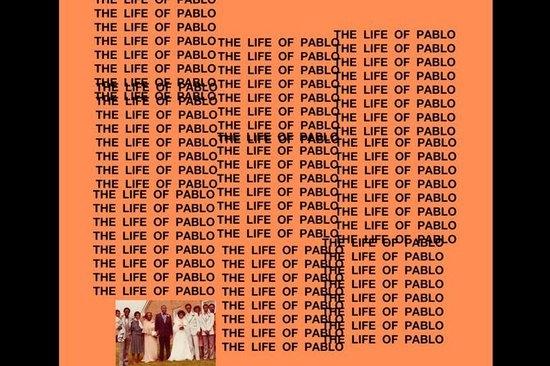Album Review: The Life of Pablo

Kanye’s new release
“Kanye West”- a name that cannot be spoken with objectivity. A pointed opinion follows this man wherever he goes (and none more pointed than his opinion of himself). Those who shudder at his mention detest his public appearance- one of unapologetic arrogance and outright rudeness- and barely give a moment’s listen to his actual music, which even the casual listener can see is generously peppered with misogynistic messages and self-indulgence. For years the masses have watched in amused horror as headlines answered the question “What did Kanye do this time?” It is certainly no unpopular opinion to view this outrageous behavior in bad taste; however, this pop-culture icon’s name could not be household without love to fight against the hate, as the source of it all watches with a smirk. Not only do many admire his music, which has undoubtedly changed the industry forever, but also this same pride that evokes anger from others. Assuming that his image is not all an elaborate ploy to keep his name relevant in the media, if there’s one thing Kanye does, it’s that he speaks his mind- an action that a large portion of our nation applauds feverishly (sound like a certain GOP candidate?). While having a knack for delivering statements designed to shock audiences may not be the most sound quality elect a leader upon, it does clearly have its place in music, even if to do nothing more than entertain. Personally, my past involvement with Kanye goes no further than an amused sigh, and the somewhat guilty enjoyment of a few select hits. For this reason, I have little ability to analyze the rap-legend’s latest release, The Life of Pablo, in terms of its significance within his career, or in context with the trends of hip hop in the modern day. However, any great album should be able to be evaluated based on isolated musical merit, even if it is created by the most infamous man in the industry.
This being said, certain aspects of TLOP’s release details contribute directly to its value. In one word, the creation of this long-anticipated album can be described as disheveled. The date of its release was changed several times, along with the actual title, and music-sharing corporations battled ruthlessly for exclusivity rights (Tidal won out, so good luck actually finding a way to listen). The version currently available is most likely not even the final cut, and no one is sure which tracks of the 18 will permanently remain. Despite these circumstances which leave fans flustered, it is precisely the disheveledness of this work which gives it a large portion of its character. An entire listen through of the album leaves one feeling inspired in the most chaotic sort of way- fitting considering this perfectly describes Kanye presently in his career. This art is being created by a man struggling with conflicting expectations- stable husband vs. well-known womanizer (“FML”), role-model father vs. tabloid entertainer (“Father Stretch my Hands”), humble friend vs. popularity fiend (“Real Friends”)- and such conflict is represented beautifully in a traditionally unfavorable package- complete incoherence. With knowledge of Kanye’s life situation, valuable insight is gained into lyrics rooted in identity crisis, and augmented by characteristically crude humor.
While it would be a misstep to ignore the man’s cultural significance when analyzing The Life of Pablo , it is important to deliver full attention to the art that earned Kanye his seat on the throne. Opinions on this album may vary, but it is hard to deny that it is an incredible production which covers enough ground to appeal to all tastes in some way. “Unstable” would be a fitting descriptor of TLOP, but equally fitting would be “dynamic”. The album stays entertaining for every moment across its 18 tracks, creating an entirely new soundscape every two minutes. From the soul-infused opener “Ultralight Beam” to the lively and light-hearted “No More Parties in LA”, Kanye is demonstrating, with the help of a wide range of famous friends, that he is anything but a one-trick-pony. He weaves such a variety of styles across this fast-paced release that he truly transcends the rap genre, instead creating a difficult masterpiece broad enough to be categorized simply as “music”. And plenty of content is indeed difficult; Kanye breaks out some of his most charged and cringe-worthy lyrics to date, and it would be concerning if someone walked away believing that he is a virtuous man. Despite this, the true shame is when listeners fall into the trap of becoming unable to move past the abrasive statements and outlandish attitude of a man so objectively talented. No matter what one’s personal opinion is towards this album, the music itself is undoubtedly impressive. It is more than aggressive words spewed out over a droning beat; each track is well-thought-out, masterfully produced, emotionally powerful, and graced with cunning poetry, whether agreeable or not. Kanye has succeeded in what it is he is trying to create- a glorious painting of a broken, potentially hateable man living in the aftermath of the mark he has left on the world. The ability to take audiences on such a journey, and make them feel something, even disgust, is a mark of art in its highest form. The Life of Pablo is good music. Taking this album at face value is a liberating experience.
Amidst the onslaught of criticism for his unapologetic self-worship, Kanye does nothing but bask. If the number of times he mentions his own name in the 40-second freestyle “I Love Kanye” demonstrates anything other than an inflated ego, it is a biting awareness of himself. Through all the turbulence in life, he knows who he was, and who he has become. Never has he been so true to himself than in his salute to all those who have given him his larger-than-life name: “And I love you like Kanye loves Kanye.”
